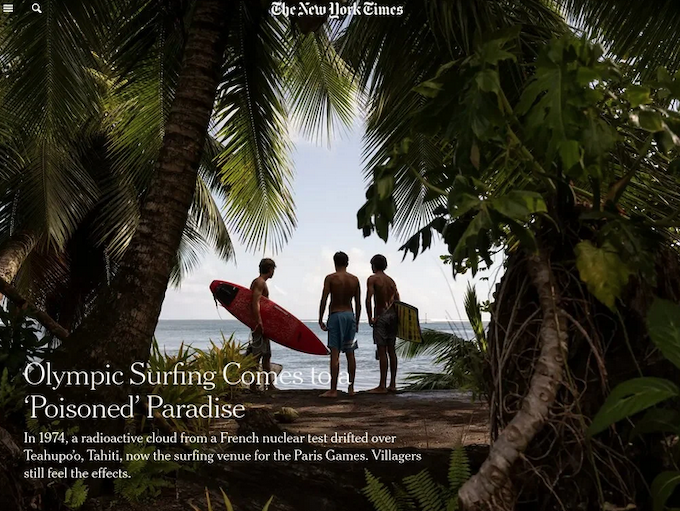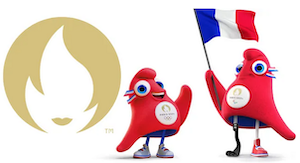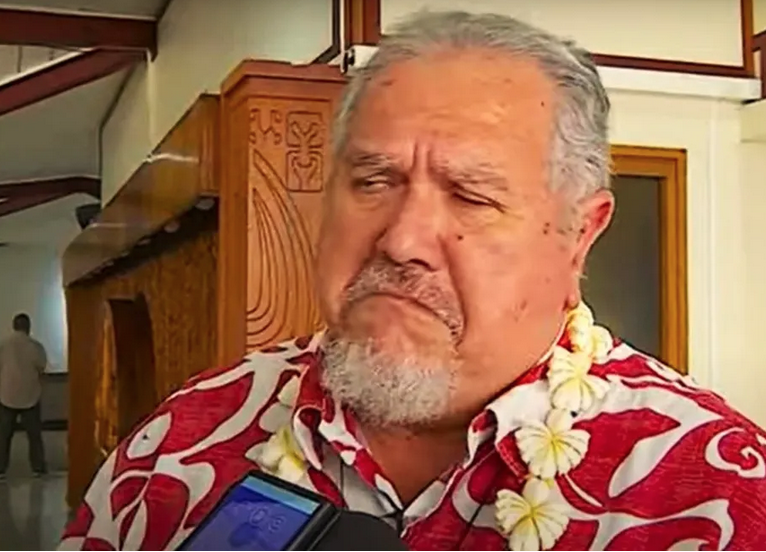
By Patrick Decloitre, RNZ Pacific correspondent French desk
French Polynesia’s top leaders have voiced united angry protests against a New York Times story published this week headlined “Olympic Surfing Comes to a ‘Poisoned’ Paradise”.
The story, published in Tuesday, was referring to the fallout in 1974 from one of the French nuclear tests — 193 were carried out between 1966 and 1996 on the atolls of Moruroa and Fangataufa — that would have contaminated the main island of Tahiti where the surfing events of the Olympics are currently being held in Teahupo’o.
Reacting to the article, Tony Géros, President of Polynesia’s Territorial Assembly, told public broadcaster Polynésie La Première TV that “just because The New York Times brings up age-old subjects doesn’t mean that today we’re going to question the entire future of the country regarding this matter.
- READ MORE: French nuclear tests in the Pacific: the hidden fallout that hit Tahiti
- Other Paris Olympics reports

“It just doesn’t hold water.
“You know, they have the right to think what they want. They can come and lecture us.
“I think the United States also conducted their own nuclear tests,” said French Polynesia President Moetai Brotherson.
“So there you go, it doesn’t bother me that much.
“What would bother me was if this story became a big deal.”
Immediately after the Second World War, the US established its nuclear test Pacific Proving Grounds in the UN mandated trust territory of Micronesia.
Several sites in the Marshall Islands and a few other sites in the Pacific Ocean were where the US conducted 105 atmospheric and underwater — not underground — nuclear tests between 1946 and 1962.
The US tested a nuclear weapon codenamed Able on Bikini Atoll on 1 July 1946. It was followed by Baker three weeks later on July 25.
This article is republished under a community partnership agreement with RNZ with additional reporting by Asia Pacific Report.













































